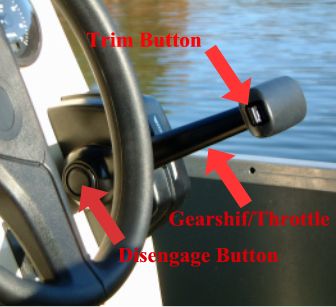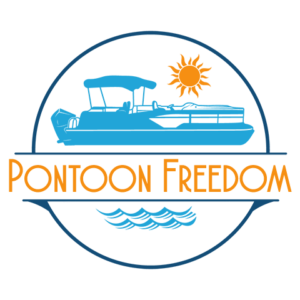When it comes to boating, pontoon boats have gained immense popularity in recent years. These versatile vessels are known for their stability, spaciousness, and overall ease of use. Whether you’re an experienced boater or a complete novice, pontoon boats provide a relaxed and enjoyable experience on the water. Pontoons boats are one of the easiest boats to drive, but may not handle well in rough waters.
Stability
One of the primary reasons pontoon boats are considered easy to drive is their exceptional stability. Unlike traditional V-hull boats, pontoon boats have a flat deck supported by pontoons, which are cylindrical-shaped flotation devices. This design distributes weight evenly across the water’s surface, making the boat more resistant to tipping or rolling. As a result, pontoon boats provide a stable platform, even in choppy waters or when passengers move around the deck. This stability instills confidence in drivers and ensures a smooth and comfortable ride for everyone onboard.
Maneuverability
Another advantage of pontoon boats is their excellent maneuverability. Most models feature dual pontoons, which enhance steering responsiveness. The design allows the boat to pivot on its axis, making it easy to navigate tight spaces, docks, or crowded marinas. Pontoon boats typically have a smaller turning radius compared to other types of vessels, allowing drivers to make precise maneuvers without much effort. This maneuverability is particularly beneficial for novice boaters who may still be refining their skills.
Simple Controls and Operation

Pontoon boats are designed with simplicity in mind, making them accessible to boaters of all experience levels. The controls and instruments on a pontoon boat are typically straightforward and easy to understand. The steering wheel, throttle, and other essential controls are usually located in a central console within easy reach of the driver. Moreover, pontoon boats often feature user-friendly technologies, such as digital displays, GPS navigation systems, and wireless connectivity, which further enhance the overall boating experience.
Slow-Speed Handling
Pontoon boats excel in slow-speed handling, which can be a significant advantage for beginners. When entering or leaving a dock or navigating through a no-wake zone, pontoon boats offer exceptional control at lower speeds. This feature allows drivers to take their time, precisely position the boat, and maintain control in tight quarters. Pontoon boats’ slow-speed handling also makes them suitable for various recreational activities like fishing, swimming, and watersports, where precise positioning and maneuvering are essential.
Safety Features
Pontoon boats are equipped with several safety features that contribute to their ease of operation. These may include railings, non-slip flooring, and sturdy boarding ladders, ensuring the safety of passengers when embarking or disembarking. Additionally, many pontoon boats come with built-in safety features like fire extinguishers, navigation lights, and emergency signaling devices, which further enhance the boating experience and promote peace of mind for drivers and passengers alike.
In conclusion, pontoon boats are indeed easy to drive, making them an ideal choice for boaters of all skill levels. Their stability, maneuverability, simple controls, and excellent slow-speed handling make pontoon boats accessible and enjoyable for everyone. Whether you’re a seasoned boater or new to the water, these vessels provide a safe, comfortable, and user-friendly boating experience. So, if you’re considering a leisurely day on the water with family and friends, a pontoon boat is undoubtedly a fantastic option to explore.
